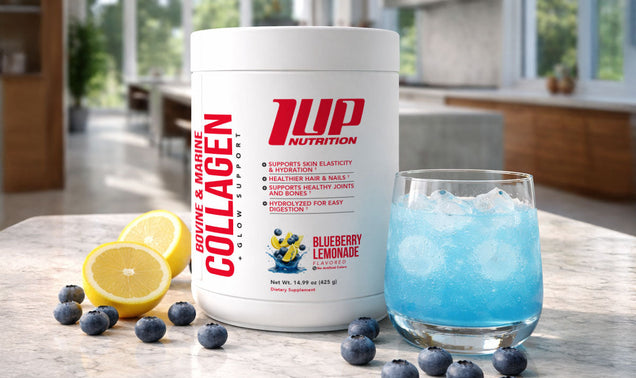Longevity refers to an individual’s duration of life or viability. It’s become a hot topic over the past few years, especially in the supplement and “biohacker” industry, where all sorts of tips, tricks, and “hacks” are promoted to increase your longevity.
We’ll save you hundreds, if not thousands of hours and dollars, and cut through the noise -- there are no hacks, tricks, or pills to living longer. It boils down to a few key points:
- Eat a nutritious diet
- Exercise frequently
- Maintain a healthy body weight
- Limit alcohol intake
- Restrict smoking
- Get enough sleep
- Manage stress
Nail those things and you significantly enhance your chances for living a long and vibrant life.
Today, we’ll delve deeper into one of those pillars of living a long, healthy, and vibrant life -- what to eat to help you live longer and healthier.
But first, if you want a quick answer…
The Mediterranean Diet
The Mediterranean diet continues to rank as the best diet for diabetes, weight loss, joint support, and overall health, according to the U.S. News & World Report - a leading authority in health rankings.[1]
In fact, a recently published study in JAMA Network Open, followed >25,000 women for up to 25 years. The team of researchers found that the women who closely adhered to the principles of the Mediterranean diet had up to a 23% lower risk of dying from any cause during the study period.[2]
A prior review from 2018 stated that the Mediterranean diet may “reduce the risk of myocardial infarction, stroke, total mortality, heart failure and disability.”[3]
Why the Mediterranean Diet Supports Longevity
Contrary to other fad diets that emphasize or eliminate certain foods, the Mediterranean diet promotes a healthy and sustainable way to eat for longevity. One that emphasizes:
- Lean protein, especially fatty fish and other seafood
- Fruits
- Vegetables
- Whole grains
- Nuts
- Seeds
- Legumes
- Dairy (yogurt and fermented cheeses)
As you’ll notice, the Mediterranean diet is rich in healthy fats (including omega-3s) and fiber.
It also encourages a modest intake of red meat, which is typically higher in saturated fat (several epidemiological studies have shown an association between saturated fat intake and an increased risk of cardiovascular disease).
Researchers have also stated that the “combination of many elements with antioxidant and anti-inflammatory properties, which overwhelm any single nutrient or food item.”[3]
The main takeaway here is that if you’re looking for the short and sweet answer for the best diet for longevity -- the Mediterranean diet is widely recognized as one of the best options.
If you’re looking for a more nuanced answer, then keep reading…
How Diet Impacts Longevity
Research has shown that a diet rich in plant foods (e.g. fruits, vegetables, nuts, seeds, legumes, and whole grains) is associated with a lower risk of premature death.
In fact, a 2023 study that analyzed the eating patterns of more than 120,000 people over 30 years found that individuals who consumed more plant-inclusive meals were less likely to die from cancer, cardiovascular disease, neurodegenerative disorders or respiratory illnesses.[2]
On the flip side, diets high in ultra-processed foods (i.e. the typical Western Diet) are low in fruits, veggies, fiber, and key micronutrients, such as antioxidants. Diets such as these are associated with increased risks of weight gain, cardiometabolic complications, and early mortality.
To make matters worse, estimates indicate that a meager 10% of individuals consume the recommended 2-3 cups of vegetables per day, and 12% hit the daily target of 1-½ - 2 cups of fruit per day.[5]
Ideally, you should aim for 4-5 servings of fruit and veggies per day. More than this is fine, but the potential longevity benefits cap out around here, according to the current body of evidence.[6]
Key Points of What to Eat to Help You Live Longer & Healthier
- Focus on nutritious foods (lean proteins, fruits, veggies, nuts, seeds, legumes, whole grains, and healthy fats)
- Limit ultra-processed foods, such as cookies, pastries, cakes, etc.
- Moderate your alcohol intake
- Avoid smoking
The Mediterranean diet provides a great framework to follow. Not only does it support longevity and overall health, it also supports immune function and joint health.
For added nutritional support, you may want to consider a daily fiber supplement or reds & greens superfoods supplement which contains beneficial nutrients to support your body’s needs when you’re on the go and may not have time for your regular healthy meal plan.
And, if you ever want help figuring out an easy, sustainable, and effective meal plan (or workout), we’ve got you covered!
The 1UP Fitness App offers personalized nutrition support and workout plans to help you achieve the results you want and live your best life!
References
- https://www.usnews.com/info/blogs/press-room/articles/2024-01-03/u-s-news-reveals-the-2024-best-diets
- https://www.health.harvard.edu/heart-health/study-links-mediterranean-diet-to-living-longer
- Martinez-Gonzalez MA, Martin-Calvo N. Mediterranean diet and life expectancy; beyond olive oil, fruits, and vegetables. Curr Opin Clin Nutr Metab Care. 2016 Nov;19(6):401-407. doi: 10.1097/MCO.0000000000000316. PMID: 27552476; PMCID: PMC5902736.
- Z, Wang F, Li Y, et al. Healthy eating patterns and risk of total and cause-specific mortality. JAMA Intern Med. 2023;183(2):142-153. doi:10.1001/jamainternmed.2022.6117
- Lee SH, Moore LV, Park S, et al. Adults meeting fruit and vegetable intake recommendations – United States, 2019. MMWR Morb Mortal Wkly Rep. 2022;71(1):1-9. doi:10.15585/mmwr.mm7101a1
- Aune D, Giovannucci E, Boffetta P, et al. Fruit and vegetable intake and the risk of cardiovascular disease, total cancer and all-cause mortality-a systematic review and dose-response meta-analysis of prospective studies. Int J Epidemiol. 2017;46(3):1029-1056. doi:10.1093/ije/dyw319






